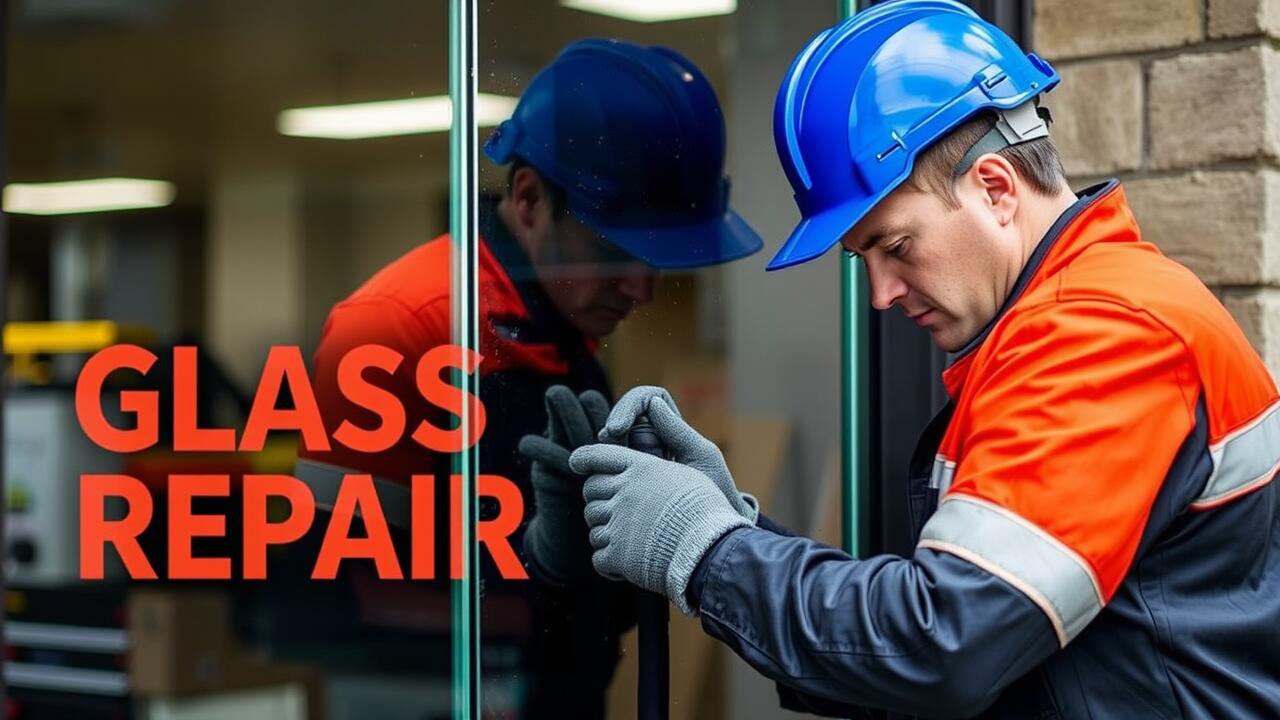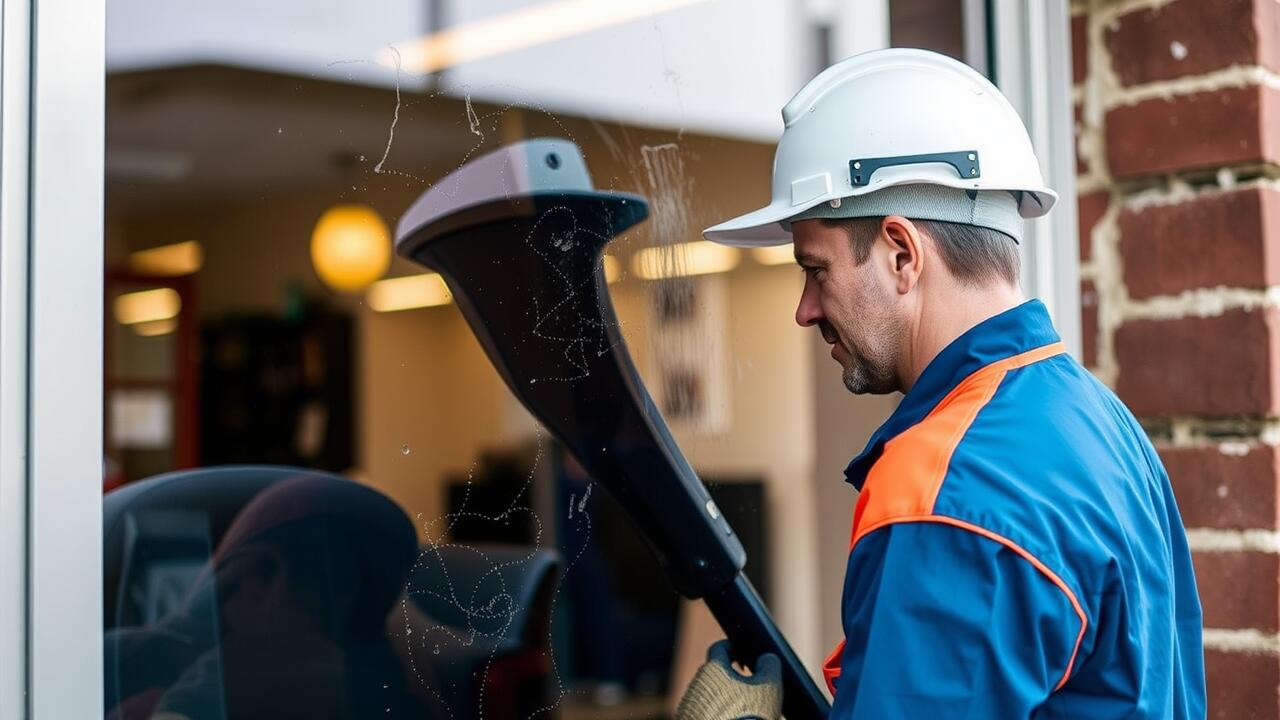
Acoustic Properties of Glass
The acoustic properties of glass play a vital role in determining how effectively a storefront can minimize outside noise. Different types of glass can significantly impact sound transmission, with thicker and laminated options providing better sound insulation. This is especially important for businesses located in bustling urban environments where noise pollution can affect the ambiance and overall customer experience.
Choosing the right glass for storefront applications can also influence the need for subsequent maintenance, especially when it comes to soundproofing capabilities. In cases where damage occurs, options such as Storefront Glass repair in Fairfax, Virginia, can help restore both functionality and aesthetic appeal while ensuring effective noise reduction is maintained. Understanding these properties can guide business owners in making informed choices for their storefront installations.
Soundproofing Solutions
For effective soundproofing in storefronts, choosing the right type of glass can make a significant difference. Laminated glass, made by sandwiching a layer of polyvinyl butyral (PVB) between two sheets of glass, offers superior sound dampening qualities. This type reduces exterior noise, creating a more comfortable shopping environment for customers. Additionally, thicker glass can enhance sound insulation properties, further minimizing disturbances from busy streets or nearby construction.
Storefronts aiming for a quieter atmosphere might also consider specialized acoustic window films. These films can be applied to existing glass to improve sound transmission resistance. Such enhancements not only elevate customer experience but also contribute to overall property value. For those in need of adjustments or upgrades, seeking professional assistance for storefront glass repair in Chevy Chase, Maryland, is an excellent choice to ensure optimal installation and soundproofing efficiency.
Maintenance Tips for Storefront Glass
Maintaining storefront glass requires regular cleaning to keep it looking pristine. Dust, dirt, and environmental pollutants can accumulate quickly, necessitating the use of appropriate cleaning materials. Avoid abrasive cleaners that may scratch the surface. Instead, opt for a mixture of mild detergent and water. Use a soft cloth or a squeegee for application, ensuring that you cover all areas of the glass, including corners and edges where grime tends to gather.
In addition to routine cleaning, it’s important to inspect the glass for any signs of damage regularly. Chips and cracks can worsen over time if left unaddressed, potentially compromising the integrity of the storefront. For businesses in need of repairs, Storefront Glass repair in Virginia offers professional services to restore the beauty and functionality of glass features. Quick attention to these issues can help avoid more costly repairs down the line.
Cleaning Best Practices
To keep storefront glass looking pristine, it’s essential to establish a regular cleaning routine. Use a soft, lint-free cloth or a microfiber towel to avoid scratching the surface. Opt for a pH-balanced glass cleaner to prevent streaks and buildup. Avoid cleaning in direct sunlight, as this can lead to rapid drying and unsightly streaks. After applying the cleaner, use a circular motion to ensure an even finish, and tackle any stubborn spots with gentle pressure.
For those dealing with more significant issues, professional assistance may be needed. Storefront Glass repair in Crofton, Maryland, can address any chips or cracks that cleaning alone cannot remedy. Regular maintenance not only enhances appearance but also extends the durability of the glass. Consider scheduling professional inspections periodically to identify potential problems early on.
Cost Factors for Storefront Glass
When considering storefront glass, several cost factors come into play. The type of glass selected for the storefront significantly influences the overall price. High-performance glasses, such as those with energy-efficient or impact-resistant features, tend to be more expensive. Additionally, the size and layout of the storefront can affect material costs and installation efforts, which may lead to increased expenses. Custom shapes or sizes often require specialized manufacturing that adds to the financial outlay.
Another important consideration involves the potential need for maintenance and repair over time. While quality materials can offer durability, the costs associated with glass repair should not be overlooked. For businesses in need of immediate assistance, such as those seeking storefront glass repair in Falls Church, Virginia, timing and quick service can also impact overall budget considerations. Understanding both the installation and long-term costs provides a clearer picture for business owners planning their storefront projects.
Budgeting for Installation
When budgeting for the installation of storefront glass, several factors must be considered to ensure a successful project. The size and design of the storefront dictate the amount of glass required and can significantly influence overall costs. Additional expenses may arise from the need for permits or specialized installation techniques, particularly with larger or custom designs. It is essential to account for these variables to develop a comprehensive budget that reflects the total scope of the project.
Storefront Glass repair in Leesburg, Virginia, can also impact your overall budget. Local labor rates and material availability may affect pricing variations. Securing multiple quotes from reputable suppliers and installers will provide insights into potential costs and help in making informed financial decisions. Allocating an appropriate budget for unforeseen repairs or damages during the installation process is advisable to prevent unexpected financial strain.
FAQS
What type of glass is best for storefronts?
The best type of glass for storefronts typically includes tempered or laminated glass, as they provide durability, security, and excellent visibility.
How do acoustic properties of glass affect storefronts?
Acoustic properties of glass can significantly impact the level of noise reduction in a storefront, making it important to consider soundproofing solutions if the location is in a high-traffic area.
What are some effective soundproofing solutions for storefronts?
Effective soundproofing solutions include using laminated glass, adding acoustic seals around the frame, and incorporating sound-absorbing materials in the store’s interior design.
How can I maintain storefront glass to keep it looking good?
Regular cleaning with appropriate glass cleaners, avoiding abrasive materials, and scheduling professional inspections can help maintain storefront glass’s appearance and integrity.
What are the cost factors I should consider when choosing glass for my storefront?
Cost factors include the type of glass selected, size and thickness, installation expenses, any additional soundproofing features, and ongoing maintenance requirements.
